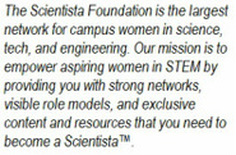|
By Julie Wolf
Despite the U.S. News and World Report’s rankings, there is no one “best” college experience for everyone. A number of personal preferences are involved in choosing where to go to school, including location, cost, competitiveness, and interests. An important factor when it comes to choosing a school is the size of the institution. Will you go to the large, research-focused university? Or do you prefer a smaller, more undergraduate-focused liberal arts school? Either choice can contribute to a top-notch education, but it’s important to ensure you are making the most of your opportunities wherever you decide to attend.
Although there are a wide variety of university types, this two-part series will focus on the opposite ends of the spectrum mentioned above. Previously, we have discussed the benefits of a large, research-oriented university. This article will cover how to get the most from the opportunities offered by a small, liberal arts college. Nobel-prize laureate Thomas Cech has high praise for the research preparedness of liberal arts graduates, and we here at Scientista thought of a few ways to maximize your experience while in school:
Form relationships with your professors Small liberal arts colleges tend to be student-focused. While they often offer student research opportunities, many of the professors joined liberal arts faculty because they have a passion for teaching. Professors may also have more time for career advice and other guidance-related discussions. You may even have the opportunity to take multiple classes with the same professor, so keep notes on which teaching styles mesh best with your learning style and plan your course selection accordingly! Participate in smaller class discussions The faculty-to-student ratio is much smaller at a liberal arts college, promoting more direct interactions with professors. A smaller class size facilitates in-class discussion, so make sure you prepare and participate! Ask questions before, during, or after class. Find research opportunities A huge advantage of an undergraduate-specific institution is interactivity with professors – especially when conducting independent research! Professors are as excited by the process of research as they are by the results, and they will guide you themselves through generating, testing, and evaluating hypothesis-driven research. After gaining independence, you will likely own your research project – no intermediary post-doc or technician to update! Build a community Because of smaller class size (both in your courses and the graduating class), it’s easier to get to know a larger proportion of your classmates. You will play a large part in deciding the community dynamics! Determine your strengths and contribute, whether it is by encouraging a sense of camaraderie, planning social or studying events, tutoring or volunteering with your classmates. Utilize administrative access Students at small colleges often have greater access to administrative staff. Can’t get into a filled class? Learn the channels to access higher-ups – a spot is more likely to open up if the Dean goes to bat for you. Being proactive about understanding organizational structure can benefit you in the long run! 
About the Author
Julie Wolf is a research scientist studying infectious disease at Albert Einstein College of Medicine in New York. She is passionate about increasing scientific literacy and improving scientific communication in traditional and nontraditional settings. Julie has taught at CUNY Bronx Community College, Long Island University, and the Brooklyn-based community biolab, Genspace. She writes for Scholastic Science World and the Scientista Foundation. Comments? Leave them below!
0 Comments
Your comment will be posted after it is approved.
Leave a Reply. |
Education BlogAbout ScientistaSubscribe!NEW!New PostsWhat's HotClick to set custom HTML
You Might Like...
Connect With UsLatest tweets |
The Scientista Foundation, Inc. All Rights Reserved © 2011-2021 | Based in NY | [email protected]
The Network for Pre-Professional Women in Science and Engineering
The Scientista Foundation is a registered 501(c)(3) -- Donate!
The Network for Pre-Professional Women in Science and Engineering
The Scientista Foundation is a registered 501(c)(3) -- Donate!



 RSS Feed
RSS Feed









